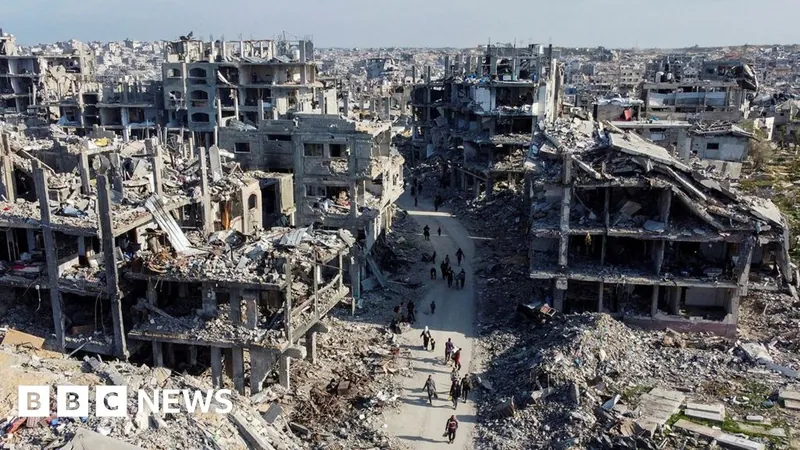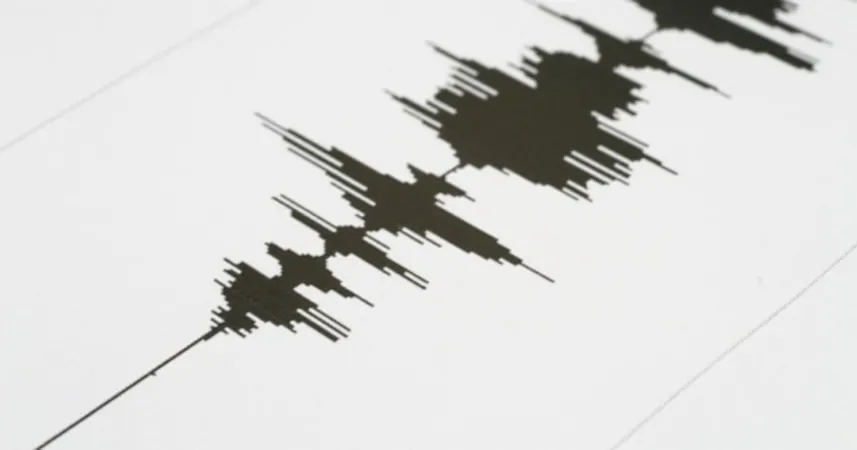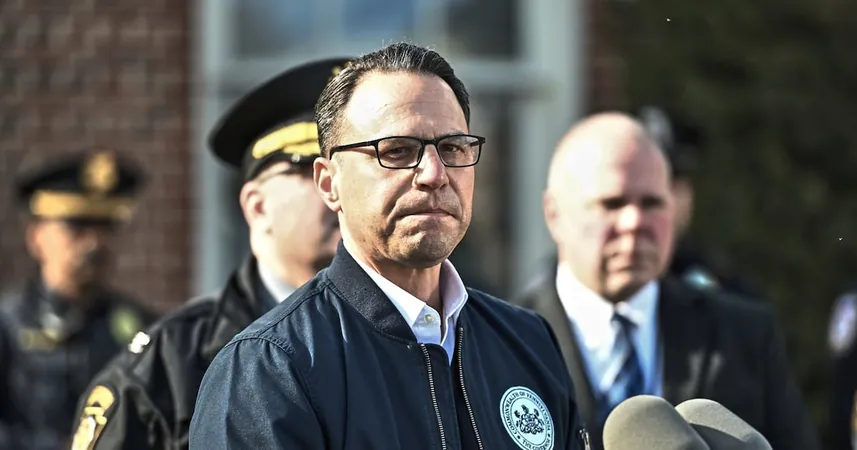
UN Official Warns: Rebuilding Gaza Will Be a Long and Challenging Process
2025-01-20
Author: Jacques
UN Official Warns: Rebuilding Gaza Will Be a Long and Challenging Process
The rebuilding of Gaza, a region ravaged by ongoing conflict, will require an extensive amount of time despite recent advancements in humanitarian aid deliveries, according to a senior UN official. Sam Rose, acting director of the United Nations Relief and Works Agency for Palestine Refugees (UNRWA), emphasized that the needs go far beyond basic supplies. “We’re not just talking about food, healthcare, buildings, roads, infrastructure. We have individuals, families, communities that need to be rebuilt,” he said during an interview with the BBC.
In the wake of a ceasefire and a deal involving hostage releases between Israel and Hamas, an influx of aid began entering Gaza. Over 630 aid trucks have crossed into the territory since Sunday, providing critical resources such as food, blankets, and winter clothing that had been stranded outside for months.
The ceasefire agreement stipulates that 600 aid trucks, including 50 carrying fuel, must enter Gaza daily during the first six weeks. During this period, Hamas is tasked with releasing 33 Israeli hostages in exchange for hundreds of Palestinians imprisoned in Israel. Mr. Rose noted the optimistic shift in operations, stating that humanitarian efforts are now more straightforward as the active conflict has ceased, which also decreased incidents of looting and criminality.
However, he cautioned against equating aid volume with the real needs of the population. "Every person in Gaza has been traumatized by what's gone on. Everyone has lost something. Most of those homes are now destroyed, most of the roads are now destroyed. It’s going to be a long, long process of rehabilitation and rebuilding," he added.
The World Health Organization (WHO) is formulating a 60-day strategic plan to revive Gaza’s health system and cater to emergency medical needs, especially for those severely injured. This initiative includes repairing hospitals—half of which are out of commission—erecting temporary clinics, tackling malnutrition, and controlling potential outbreaks of diseases.
Meanwhile, UN humanitarian chief Tom Fletcher highlighted the "staggering" humanitarian needs faced by Gaza's residents, noting that the Israeli military restrictions, hostilities, and breakdown of local law and order have contributed significantly to the worsening crisis. Israel, on the other hand, has publicly asserted that there are no limits to aid delivery and holds UN agencies responsible for any distribution failures, accusing Hamas of misappropriating aid.
The humanitarian situation since October 7 has been dire, following a catastrophic cross-border attack by Hamas that resulted in considerable Israeli casualties. Since then, the region has faced overwhelming loss, with reports stating over 47,000 deaths and 111,000 injuries. The fallout has left most of Gaza’s 2.3 million population displaced and struggling against the collapse of essential services.
Worrying statistics from the UN-backed Integrated Food Security Phase Classification (IPC) show that 1.84 million people in Gaza are currently suffering from acute food insecurity, with fears of imminent famine in some northern regions.
Before the ceasefire, several northern towns were cut off from food assistance during intense military operations aimed at disabling Hamas. A resident, Manal Abu al-Dragham, returned to her home in northern Gaza to find utter devastation, recalling that the destruction resembled that of an earthquake. “I will set up my tent in the north no matter what it costs; I do not want to be displaced from my land again,” she resolved.
UNRWA teams, located in southern Gaza, haven't yet gained access to the north for aid distribution due to ongoing military restrictions. However, the organization remains poised to mobilize if clearance is granted.
Complications may arise for UNRWA due to new Israeli laws that could hinder its operations in Gaza. Accused of collusion with Hamas, UNRWA faces skepticism from Israel, which claims that some of its employees were involved in the October 7 attack. Despite this, UN officials underscore the agency's essential role in delivering aid, with its commissioner general emphasizing that Palestinian staff in Gaza are committed to continuing their efforts, even amidst personal risks.
As the reconstruction of Gaza unfolds, the challenges will be immense, requiring international cooperation, political will, and a sustained humanitarian effort to support a region desperate for recovery and hope.









 Brasil (PT)
Brasil (PT)
 Canada (EN)
Canada (EN)
 Chile (ES)
Chile (ES)
 Česko (CS)
Česko (CS)
 대한민국 (KO)
대한민국 (KO)
 España (ES)
España (ES)
 France (FR)
France (FR)
 Hong Kong (EN)
Hong Kong (EN)
 Italia (IT)
Italia (IT)
 日本 (JA)
日本 (JA)
 Magyarország (HU)
Magyarország (HU)
 Norge (NO)
Norge (NO)
 Polska (PL)
Polska (PL)
 Schweiz (DE)
Schweiz (DE)
 Singapore (EN)
Singapore (EN)
 Sverige (SV)
Sverige (SV)
 Suomi (FI)
Suomi (FI)
 Türkiye (TR)
Türkiye (TR)
 الإمارات العربية المتحدة (AR)
الإمارات العربية المتحدة (AR)